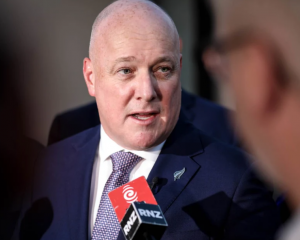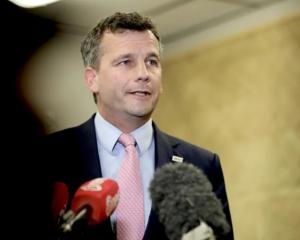National has led the Government for six years and has had time to increase research and development funding, make tax compliance easier for SMEs, reduce reporting requirements, cut red tape and provide more focus on health and safety in work places.
Science and Innovation Minister Steven Joyce took the lead by announcing $20 million more a year would be spent on research and development.
Mr Joyce, who is expected to visit Dunedin today, said the $20 million co-funding would be made through the Callaghan Innovation fund.
The funding would lift annual amounts available to lift business R&D from $142million to $162million, a 14% increase.
''It will translate to a $100million a year increase in total business R&D investment at the Callaghan Innovation R&D growth grant subsidy rate of 20%.''
Lifting business R&D support through a comprehensive suite of research services, advice and grants co-funding was one of the hallmarks of the Government's business growth agenda, Mr Joyce said.
It was a key part of the cross-government science and innovation investment which had grown more than 70% over the past six years to a projected $1.5billion a year in 2015-16.
''We have seen a 25% lift in business R&D activity in just two years and this latest increase in funding will help lift it again, in a fiscally responsible way,'' he said.
Mr Joyce also committed National to reducing tax compliance costs for small and medium-sized enterprises (SMEs).
Deloitte Dunedin tax partner Peter Truman said tax compliance was a major ''headache'' for many SMEs.
Technology was helping reduce the paperwork with tax compliance.
Many accounting packages such as Xero, MYOB, QuickBooks and Banklink automatically linked with bank account transaction detail and enabled tax reporting for GST and PAYE to be simplified significantly, he said.
''IRD's business transformation process has been long signalled.
''This involves a major revamp of IRD systems from the current First system that has been in place since the early 1990s.
''This revamp enables IRD to totally re-engineer the interface between businesses and IRD and also to re-examine that basis on which some taxes are collected.''
The combination of increased technology within SMEs and the IRD transformation process should reduce the tax compliance ''headache''.
However, it was a big project and it might take time for benefits to be fully realised, Mr Truman said.
Mr Joyce said he expected New Zealanders to notice significant improvements in their tax compliance obligations from late 2015 and through 2016 as the first state of business transformation was rolled out.
A National-led government would introduce legislation early next term to confirm the deadline and extend the ability to allocate the New Zealand Business Number beyond registered companies to all New Zealand business entities.
That would greatly reduce the costs for businesses in dealing with government agencies, he said.
Commerce and Consumer Affairs Minister Craig Foss said National would continue to reduce costs for businesses, including credit unions, by reducing reporting requirements and cutting red tape.
During the past three years, National had put in place world-best financial market legislation that contributed to a lower cost of capital for New Zealanders.
''We have also updated consumer law to target loan sharks and provide more protections for our vulnerable families.''
If re-elected, National would pass the Accounting Infrastructure Reform Bill to make the accounting and audit industry more efficient and implement the Financial Markets Conduct Act, he said.
The Act would introduce a new era of financial market regulation to ensure investors were better informed and offered better protections.
Establishing a single economic market with Australia remained a priority, to enable businesses, consumers and investors to conduct operations across the Tasman in a seamless regulatory environment, Mr Foss said.











